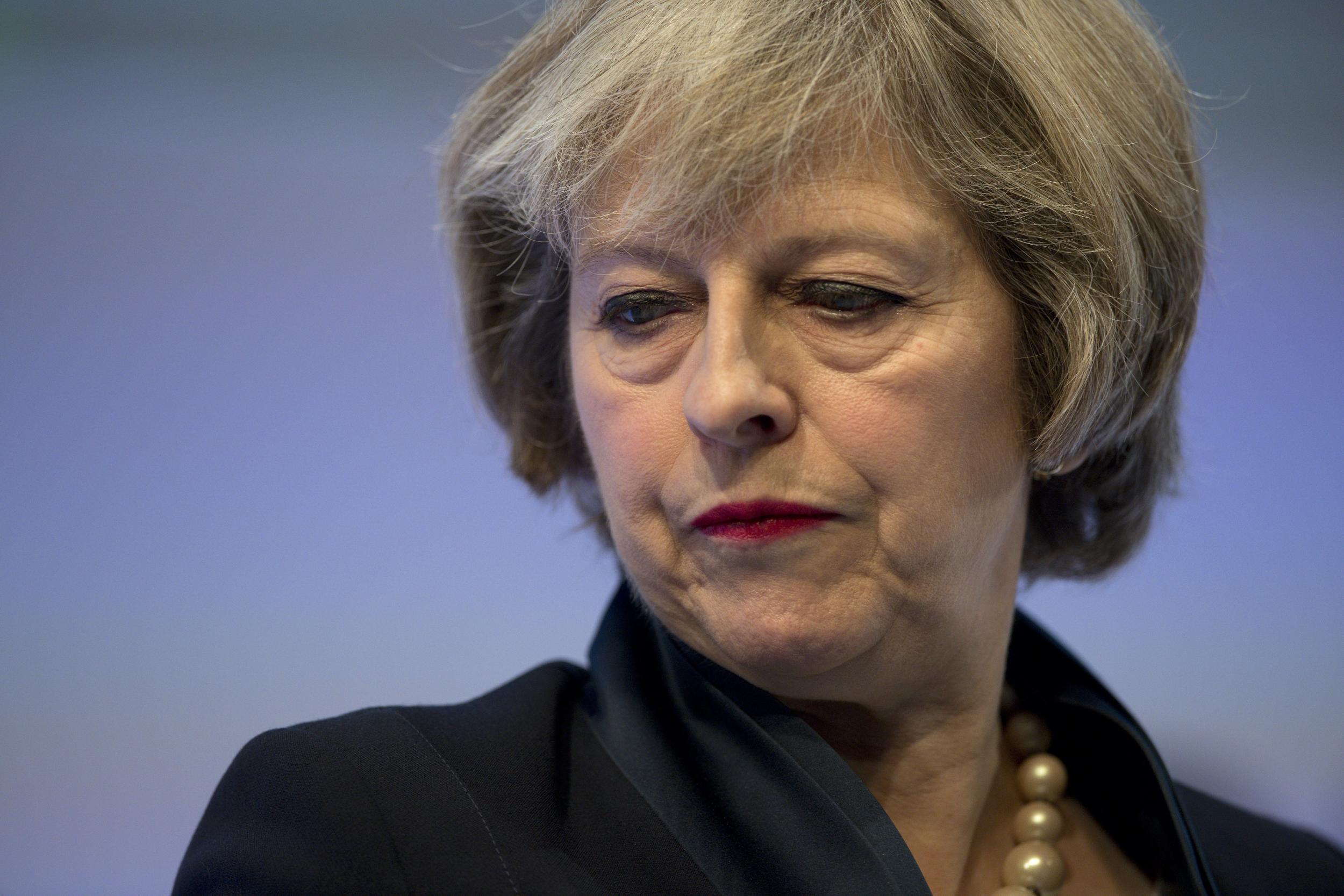Brexit: EU judges to decide on UK cases ‘for years after EU withdrawal’
Exclusive: Ministers believe legal disputes may have to be settled by European judges even after Brexit

Ministers have privately conceded European judges may still hold sway in post-Brexit legal disputes involving British parties, despite Theresa May vowing to end the authority of EU law.
Members of the Government have come to the conclusion as they explore the “devilishly complex” task of winding down the jurisdiction of the European Court of Justice (ECJ) in the UK.
The admission could be embarrassing for the Prime Minister after she said in her flagship conference speech at Tory conference that the UK is not leaving the EU “only to return” to the ECJ’s jurisdiction.
It also comes after the most senior British member of the Luxemburg court warned that it would have “ultimate authority” on the Brexit case currently being fought at the UK’s Supreme Court.
Calling an end to the ECJ’s authority has formed a key plank of Ms May’s “Brexit means Brexit” strategy, but news of the intricate challenge now facing officials sheds light on the compromises that will lie beneath the Prime Minister’s black and white rhetoric.
A Government source told The Independent: “Separating EU and UK law is like separating conjoined twins. Not ones that are attached at the arm, but ones attached at the head.
“You need to take it very slowly and carefully. Every single nerve, every single synapse is important and if you cut through the wrong one it could have devastating consequences.
“It’s going to be devilishly complex.”

The source pointed to the hypothetical example of a dispute over a contract between a British and an EU party, signed during a period in which European law and the European Court is supreme.
Brexit negotiators may have to decide which kinds of legal disputes can be solely settled in British courts and whether some may still be subject to the involvement of the European Court.
Alternatively, they may agree to set up a new commission, the source said, with the involvement of both European officials as well as British ones.
In her conference speech in October, Ms May set out how she would bring forward a Great Repeal Bill that will take all existing EU law into UK law and end the European Court of Justice’s authority in the UK.
She told applauding party members: “Its effect will be clear. Our laws will be made not in Brussels but in Westminster. The judges interpreting those laws will sit not in Luxembourg but in courts in this country. The authority of EU law in Britain will end.”
The Prime Minister later added: “We are not leaving [the EU] only to return to the jurisdiction of the European Court of Justice.”
Advocate General Eleanor Sharpston QC, the ECJ’s most senior British member, has previously said that the Luxemburg body would hold sway over the Brexit case currently being heard at the Supreme Court in London if it were referred to it.
She said that the 28 member ECJ was “fully aware of the sensitivity and delicacy and constitutional importance of the issue,” adding that a European ruling could take between four and eight months in the event of a referral.
A top lawyer earlier told the Supreme Court that triggering Brexit will “frustrate or render insensible” a large number of UK laws and is a reason why Parliament must be involved.
Lord Pannick QC is asking 11 justices in the highest court in the land to rule that Government ministers have no power to use the royal prerogative to trigger Article 50 of the Lisbon Treaty and start the two-year process of withdrawing from the EU without the prior authority of Parliament.
He is representing Gina Miller, the investment fund manager and philanthropist who won a historic High Court ruling on November 3 that Theresa May lacked prerogative powers to notify Article 50 without consulting MPs.
Lord Pannick said the June referendum which resulted in a clear majority in favour of leaving the EU was “a very important matter” but had nothing to do with the legal issue before the court, which concerned “who has the power to notify?”
On the third day of a four-day hearing, he told the judges an important issue to consider was the impact of notification on UK statutes bound up with EU laws and directives.
Lord Pannick said it was in fact the view of Brexit Secretary David Davis, who is leading the Government's appeal against the High Court ruling, that some legislation “simply will not work” on exit from the EU.
“When the court is asking itself whether the Secretary of State has prerogative powers to notify, it is an important dimension of the argument that that which he seeks to do will frustrate and render insensible a large number of statutory provisions.”
Lord Pannick submitted that the Government “must obtain parliamentary approval” in order to take steps which would have such an effect.
Join our commenting forum
Join thought-provoking conversations, follow other Independent readers and see their replies
Comments
Bookmark popover
Removed from bookmarks